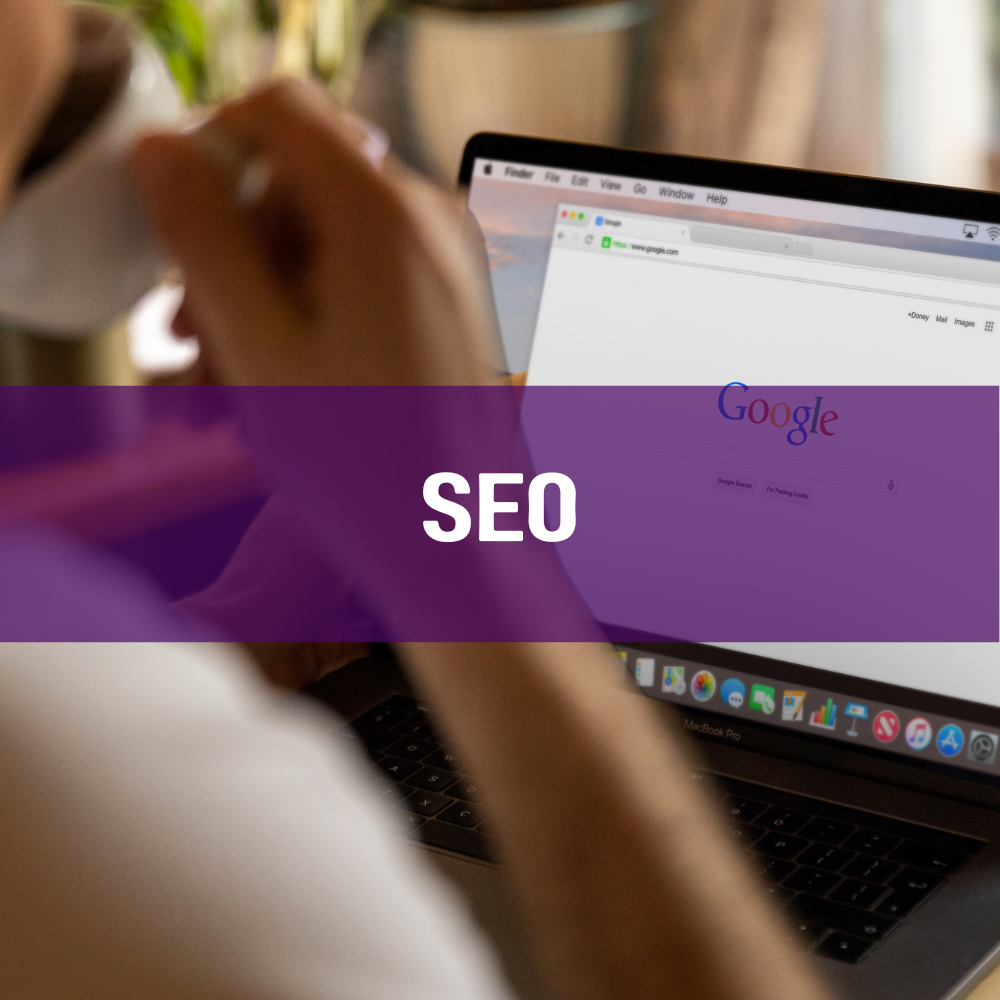The Complete Guide to PPC Advertising: Avoiding the Money Pit (And Making It Actually Work for Your Small Business)
Let me guess: you've either considered Google Ads and felt intimidated, or worse, you've tried it before and watched your budget disappear faster than free biscuits in an office meeting. You got a handful of clicks that went nowhere, and eventually turned everything off thinking "PPC just doesn't work for businesses like mine."
You're not alone. In fact, you're in the majority.
But here's the truth: PPC advertising isn't broken. When done correctly, it's one of the most effective ways to drive immediate, targeted traffic to your website. Unlike traditional advertising where you pay regardless of results, PPC ensures you only pay when someone actually clicks on your advert. The problem isn't the platform, it's how most small business owners approach it.
Understanding PPC: Your Direct Route to Customers (When Done Right)
PPC advertising, particularly through Google Ads, allows your business to appear at the top of search results when potential customers are actively searching for your products or services. This isn't about hoping the right people see your message, it's about putting your business directly in front of people who are already looking for what you offer.
For Hampshire businesses, this means when someone searches "web designers near me" or "digital marketing Gosport," your advert can appear prominently, driving qualified traffic to your website immediately. This targeted approach makes PPC advertising incredibly effective for local businesses, if you avoid the common pitfalls that turn it into a money pit.
Why Your First PPC Campaign Probably Failed
Picture this: you excitedly set up your first Google Ads campaign. You chose some keywords that seemed relevant, wrote an advert, set a budget, and hit launch. For the first few days, you obsessively checked the dashboard, watching clicks roll in. Your budget drained steadily. The phone stayed silent. The contact form collected digital dust.
Sound familiar?
The problem wasn't Google Ads. The problem was sending cold traffic to the wrong place, targeting the wrong people, with the wrong message, at the wrong time. It's like opening a shop, putting a sign in the window, and expecting customers to flood in, without telling them what you sell or why they should care.
Why Small Businesses Actually Excel with PPC (When They Get It Right)
Many business owners assume PPC advertising is only for large corporations with massive budgets, but the opposite is often true. Small businesses have distinct advantages in PPC campaigns:
Budget Control: You set exactly how much you want to spend daily, weekly, or monthly. Whether you have £100 or £1000 to invest, PPC campaigns can be tailored to your budget without compromising effectiveness. We've seen clients waste £1000 per month on poorly optimised campaigns whilst others generate consistent leads with just £300 monthly because they've nailed their targeting, keywords, and landing pages.
Local Targeting: Small businesses can dominate their local markets through geo-targeting. Why compete nationally when you can own your local area? Local PPC campaigns often have lower competition and higher conversion rates.
Immediate Results: Unlike SEO, which takes months to show results, PPC campaigns can start driving traffic within hours of launching. This makes it perfect for new businesses or those needing quick results.
Immediate Results: Unlike SEO, which takes months to show results, PPC campaigns can start driving traffic within hours of launching. This makes it perfect for new businesses or those needing quick results.
The Landing Page Disaster (The Biggest Money Waster)
Here's where most businesses go catastrophically wrong: they send expensive PPC traffic straight to their homepage. Imagine paying £2-5 per click, just to dump potential customers onto a generic page that talks about everything you do rather than the specific thing they were searching for.
Someone searching "web design Hampshire" doesn't want to land on a page about all your services. They want to see exactly what makes your web design service perfect for their needs. Every second they spend confused or searching for relevant information is a second closer to clicking the back button, taking your money with them.
Professional PPC advertising means creating dedicated landing pages for each campaign, speaking directly to what the searcher wants, and making the next step crystal clear. Sending PPC traffic to your homepage instead of dedicated landing pages significantly reduces conversion rates and is one of the fastest ways to waste your budget.
The Keyword Trap That's Draining Your Budget
Not all clicks are created equal. This is perhaps the most expensive lesson small businesses learn.
The Broad Keyword Problem: Let's say you're a web designer. You might think bidding on "web design" is perfect. But that keyword could match with "free web design templates," "web design courses," "web design inspiration," or "web design salary." Suddenly you're paying for clicks from students, job seekers, and DIY enthusiasts, none of whom will ever become customers.
Bidding on keywords that are too general attracts unqualified clicks and wastes your budget on traffic that will never convert. Instead, focus on specific, intent-driven keywords that reflect what your ideal customers are searching for.
Successful campaigns use precise keywords. Someone searching "professional web design Hampshire" or "web designer for small business" is infinitely more valuable than someone searching generic terms. They're further along the buying journey and actually looking for what you offer. The key to PPC success lies in understanding your customer journey and creating campaigns that align with different stages of the buying process.
The Negative Keyword Goldmine
Here's a secret that saves our clients hundreds of pounds every month: negative keywords are just as important as your target keywords.
Negative keywords tell Google when not to show your adverts. Adding words like "free," "DIY," "course," "tutorial," or "jobs" prevents your ads appearing for people who will never become customers. It's like having a bouncer at an exclusive club, only letting in people who actually want what you're offering.
Without negative keywords, your ads might appear for irrelevant searches, wasting your budget on clicks that will never convert. This simple step can reduce wasted spend by 40-60% whilst improving the quality of your traffic dramatically.
The Budget Sweet Spot
"How much should I spend on PPC?" is the question we hear most often. The answer might surprise you: it's not about spending more, it's about spending smarter.
Successful PPC isn't about spending the most money, it's about spending smart. PPC advertising success isn't determined by budget size but by strategy quality. With proper strategy, keyword research, and ongoing optimisation, even modest budgets can deliver impressive results for small businesses ready to grow their online presence.
The Integration Factor: Making PPC Truly Powerful
PPC advertising works best when integrated with your other digital marketing efforts. Combining PPC with strong web design, effective SEO, and professional branding creates a powerful online presence that maximises every marketing pound spent.
Here's where PPC becomes truly powerful: when it works alongside your other digital marketing efforts. Someone who clicks your advert, doesn't convert, but later returns through an organic SEO result because they remembered your business? That's the compound effect of integrated digital marketing.
For example, users who click on your PPC advert and don't convert immediately might return through organic search results or direct visits if you've also invested in SEO and brand building. This integrated approach ensures you capture customers at multiple touchpoints. Your PPC campaigns should complement your SEO strategy, reinforce your brand message, and create multiple touchpoints with potential customers.
Making PPC Actually Work: The Ongoing Optimisation Reality
Successful PPC campaigns require ongoing attention, not just a "set it and forget it" approach. This includes regular keyword research, ad copy testing, bid adjustments, and performance analysis. For busy business owners, this can be time-consuming, which is why many partner with digital marketing specialists.
Regular keyword research, bid adjustments, ad copy testing, and performance analysis aren't optional extras, they're essential. This is why many small business owners partner with specialists rather than trying to juggle it alongside running their business.
The difference between profitable PPC and a money pit often comes down to these optimisation details. Which keywords convert best? What time of day generates quality leads? Which ad copy resonates with your audience? These answers emerge through careful testing and analysis.
Getting Started with PPC (The Right Way)
If you're considering PPC advertising for your small business, start with clear goals and realistic expectations. Whether you want to increase phone calls, generate leads, or drive online sales, your PPC strategy should align with your business objectives.
Stop thinking of PPC as gambling and start treating it as a science. With the right strategy, targeting, and ongoing optimisation, those clicks can become customers, and that budget can become your best investment.
Remember: with proper strategy, keyword research, negative keyword implementation, dedicated landing pages, and ongoing optimisation, PPC can be one of your most reliable sources of qualified leads, not a money pit, but a money maker.









